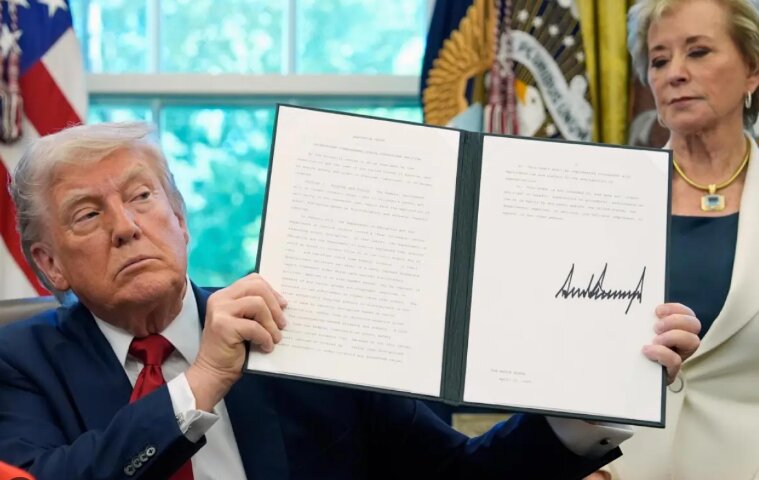15 States Unite to Challenge Trump’s Fast-Track Plan for Oil and Gas Projects
In a significant legal challenge, more than a dozen predominantly Democratic states are taking action against President Trump’s administration regarding its aggressive push to expedite energy projects. This initiative is raising concerns about the potential violation of crucial environmental protection laws.
According to a report by CBS, Trump’s administration is accused of circumventing established environmental regulations, which has sparked a lawsuit filed by 15 states in Washington. The core of the dispute stems from an executive order that Trump enacted on his first day in office, declaring a “national energy emergency” aimed at boosting U.S. oil and gas production. This order not only encourages the expansion of oil and gas projects but also employs federal powers such as eminent domain and the Defense Production Act.
The Defense Production Act allows the government to commandeer private lands and resources, but such measures are traditionally reserved for true emergencies, including significant natural disasters like hurricanes or major oil spills. The attorneys general from the suing states assert that the administration’s actions are not only inappropriate but also detrimental to environmental integrity.
The lawsuit highlights several critical points regarding the administration’s approach:
- Bypassing Environmental Reviews: The states accuse federal agencies, including the Army Corps of Engineers and the Department of the Interior, of neglecting to conduct necessary environmental reviews mandated by federal laws like the Clean Water Act and the Endangered Species Act.
- Potential Harm: The plaintiffs argue that the improper permitting processes could lead to “significant and irreparable harm” to essential state natural and historic resources.
- Impact on Communities: The ramifications of these energy projects could adversely affect the communities that rely on these resources for drinking water, agriculture, recreation, and habitats.
The states involved in the lawsuit are primarily led by Democratic attorneys general, who express their deep concerns over environmental implications and the disregard shown towards established laws designed to protect natural resources. They argue that the administration’s actions threaten not just the environment but also the health and well-being of the residents in these states.
This legal action comes at a time when the balance between energy production and environmental protection is under intense scrutiny. Critics of the Trump administration’s energy policies argue that prioritizing rapid energy expansion over environmental safeguards could have long-lasting effects on ecosystems and public health.
In addition to these legal challenges, various advocacy groups have joined the conversation, emphasizing the need for responsible energy practices that do not compromise environmental integrity. They argue that sustainable energy practices should be at the forefront of any national energy strategy, rather than a focus solely on expanding fossil fuel production.
This lawsuit represents a notable clash between state and federal authorities, particularly in how energy policies are developed and implemented. As the legal proceedings unfold, the implications of this case could set a precedent for how environmental regulations are upheld in the face of federal energy initiatives.
The ramifications of this lawsuit extend beyond the courtroom. It highlights a growing division within the United States regarding energy policies and environmental stewardship. Many states are increasingly advocating for clean energy alternatives and stricter environmental protections, standing in opposition to federal policies that they view as destructive.
In conclusion, the ongoing legal battle between over a dozen Democratic states and the Trump administration underscores the contentious nature of energy production and environmental protection in the U.S. As the situation develops, it will be essential to monitor how these legal arguments influence future energy projects and environmental laws.






